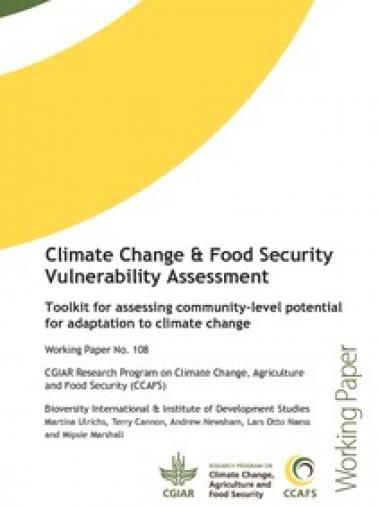Climate Change & Food Security Vulnerability Assessment. Toolkit for assessing community-level potential for adaptation to climate change

This CCAFS Working Paper presents a participatory methodology that has been designed to provide
organizations with the tools to understand the interrelations between climate impacts, food systems and
livelihood strategies at the local level, while taking into consideration traditional /indigenous knowledge of
the participating community. The toolkit developed applies a multidimensional view of the vulnerability of
livelihood strategies to climate change, with a focus on differentiated access and entitlements to livelihood
resources and food for different groups within a locality or community (often determined according to
gender, ethnicity and socioeconomic class). It includes step by step instructions on how to implement
participatory tools that were adapted to answer the following questions: Why are people vulnerable? How
are they vulnerable to climate change? What consequences does this have for their food security?
Implementing this methodology will provide an initial understanding of the local context and vulnerability
profiles, which, combined and triangulated with other sources of information (meteorological data, socio-economic indicators etc.), feeds into the process of identifying adaptation measures.
Citation
Ulrichs M. Cannon T, Newsham A, Naess LO, Marshall M. 2015. CCAFS Working Paper no. 108. Copenhagen, Denmark: CGIAR Research Program on Climate Change, Agriculture and Food Security (CCAFS).